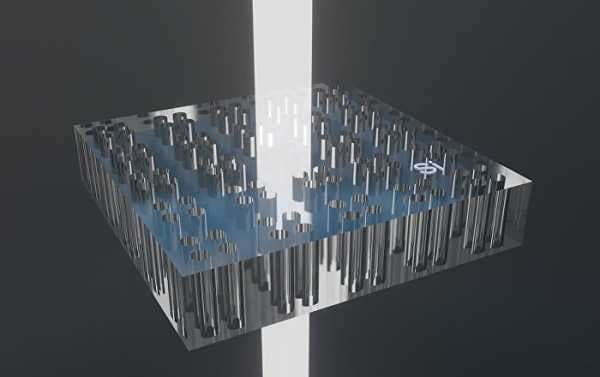
Scientists at the National University of Science and Technology MISIS (NUST MISIS) have developed an easy-to-produce dielectric metamaterial with an anapole mode that can absorb energy and let through electromagnetic radiation.
This creates important applications in various areas, including solar power and nano-optics. An article on this innovation has been published in the journal Laser & Photonics Reviews.
Anapoles or non-emitting dispersers are considered the ideal resonators. While being subjected to external radiation, they store the energy they absorb, and electromagnetic fluctuations subside very slowly.
Artificial dielectric metamaterials minimize energy dispersion levels because they don’t heat up when subjected to electromagnetic radiation. Moreover, these metamaterials can be scaled down in the optical band, and it is possible to control their resonance levels.
As a rule, such dielectrics are manufactured by accumulating complex dielectric nanoparticles or by spray-coating various nano-levels.
NUST MISIS scientists have suggested another very simple process to perforate the material with a focused ion beam inside thin silicon film or any other dielectric material.
“We were able to show that it is possible to generate a special anapole state in the optical frequency band; this state is highly promising for the large-scale localization of electromagnetic fields and sensors,” said project manager and NUST MISIS assistant professor Alexei Basharin.
According to Basharin, this metamaterial can let through electromagnetic waves. Experiments with silicon assemblies are expected to prove the method’s promising applications and will help make more transparent silicon plates for solar battery panels.
This project was implemented by NUST MISIS postgraduate students Anar Ospanova and Ivan Stenishchev, Basharin noted. The university continues the project’s experiments in collaboration with the Russian Academy of Sciences and foreign partners.
Sourse: sputniknews.com






